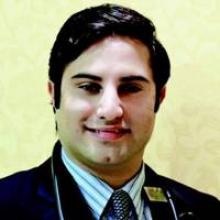The house call is back, but with a high-tech twist.
In pockets around the country, patients can use mobile applications to order up house calls in a matter of hours. Companies like Pager, which launched in New York, and Medicast, which is available on the West Coast and in South Florida, allow patients to input some personal health information and a credit card number, and have a physician visit them in their home, usually within 2 hours.
The apps have slightly different pricing models and scope of services. But a typical house call ranges from $199 to $299 and the physicians – board certified in various specialties – treat everything from bronchitis to allergies to minor injuries. Patients can even order a flu shot.
Patients can submit the receipts to their insurance company, but the services are direct pay, at least for now.
The convenience of the apps is undeniable, but what about the quality of care?
Dr. Sahba Ferdowsi, cofounder and chief medical officer at Medicast, said their model, which avoids the rushed office visit, lends itself to a thoughtful, patient-centered experience.
“It’s a world of difference,” Dr. Ferdowsi said. In a clinic setting, patients tend to be nervous. But when someone invites a physician into his or her home, there’s a certain level of “hospitality” involved that puts the patient at ease, he said.
“It allows the patient to really have their guard down,” he added.
Physicians can learn more about their patients by seeing them in their homes, Dr. Ferdowsi said. They can also spend more time with them, with visits often running 30-35 minutes, he said.
Since the house call physicians don’t have an established relationship with the patient, they make up for it by focusing on history taking and performing a full physical exam. The Medicast app also collects some personal health information that the physicians can review before the visit.
After the visit, the physician fills out the note, which can be e-mailed to the patient’s primary care physician or sent directly to the patient.
Dr. Jasper Schmidt, a Pager physician who works in Manhattan and Brooklyn, said their system works in a similar way, allowing them to automatically fax records back to the patient’s regular doctor. Going forward, Pager is looking to form partnerships with health systems that would allow them greater access to patients’ past medical histories before a visit.
The apps are getting mixed reviews from health care providers.
Dr. Neil Skolnik, associate director of the family medicine residency program at Abington (Pa.) Memorial Hospital, said that while the best care is from a physician who has a relationship with the patient and access to the complete medical history, there is value in other models of delivery.
“We are seeing an increase in urgent care utilization, meeting people’s needs for medical care where and when it is convenient for them, and it seems to me that physician house calls is an extension of this process,” Dr. Skolnik said. “While this is expensive for an office visit, and in that way is like a concierge practice, as long as the quality of care is good and the doctors are skilled and compassionate, there is no reason that this should not be an excellent option for some people for whom the convenience outweighs the cost.”
Dr. Jeffery Katz, who provides house calls to homebound Medicaid managed care patients in central Maryland, praised the house call apps, saying they have the potential to bring down costs for the health care system and free physicians from the hassles of dealing with insurance companies.
“Keeping patients away from the ER and treating them at home makes sense for a lot of reasons,” he said. “I think it’s going to be a big trend, especially as time goes on and the insurance industry tries to push the envelope on high deductibles.”
Dr. Farzanna S. Haffizulla, an internist with a direct-pay practice in Davie, Fla., said the house call app model lacks continuity of care, but works as long as the companies stick to seeing patients with uncomplicated illnesses in need of episodic care.
Ideally, she’d like to see more primary care physicians move toward incorporating house calls into their practices, as she has done, to provide both convenience and comprehensive care. In her South Florida practice, Dr. Haffizulla offers patients the option of seeing her at their home or in her office. But she acknowledges that she’s only able to do it because she doesn’t accept insurance in her practice.



